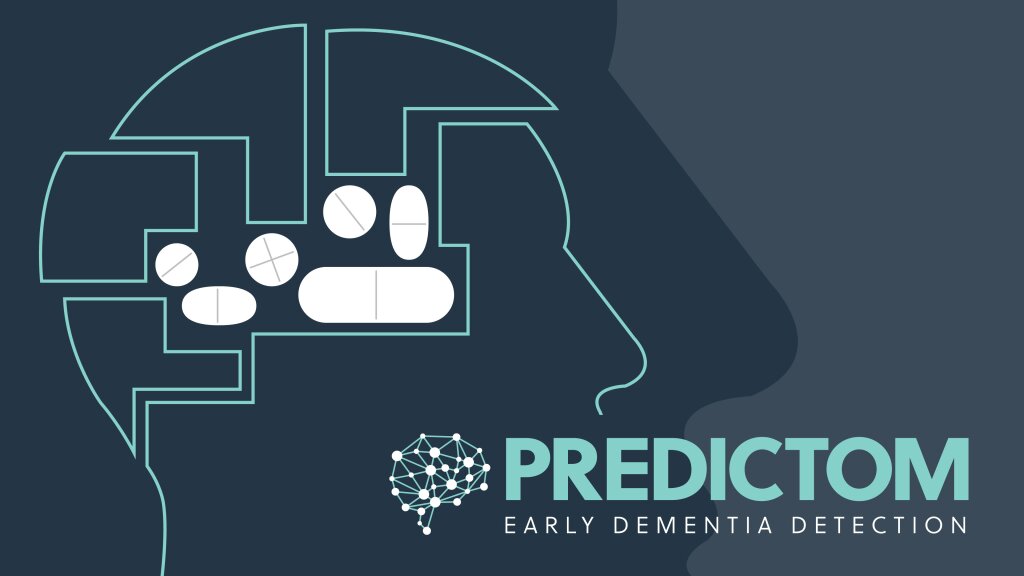In search for indicators of Alzheimer's disease to detect and track cognitive decline
Spiros Nikolopoulos, Principal Researcher at Centre for Research and Technology Hellas (CERTH), elaborates on his work within PREDICTOM and the importance of finding biomarkers for early detection of Alzheimer's disease. “My motivation has been to help doctors perform their miracles in fighting cognitive decline.”
Spiros Nikolopoulos
What is your contribution to the PREDICTOM project?
I’m the academic lead of the work package dealing with improving the access to existing biomarkers for Alzheimer's disease and the discovery of new ones. These new biomarkers or indicators are then used to detect and track cognitive decline. My role is to coordinate efforts among the different work areas that consist of digital, physiological, fluid-based and image-based biomarkers.
Throughout the duration of the PREDICTOM project, for each biomarker, we will set up a data collection protocol (e.g. scalability, data analysis approaches, logistics, ethical approval). Next, we will test the feasibility of the protocol and develop a toolkit for integration in the PREDICTOM platform. Lastly, we will validate the collection protocol using the data collected in the clinical trials.
Why is your organization as a partner in PREDICTOM best suited to fulfil this role?
Our leading role in this work package has been motivated by two different aspects. Firstly, by our scientific expertise in developing and validating digital and physiological biomarkers in the domain of cognitive decline. Secondly, by the extensive track record of our team in executing multi-disciplinary, collaborative research projects as work package leader or coordinator. Therefore, our organization was selected to co-lead the work package on biomarkers, which is probably the most extensive and complex work package in PREDICTOM.
What is your personal motivation to participate in the project?
First and foremost - as a potential beneficiary of the developed technology. Pushing back the cognitive decline that comes with aging is a matter of personal wellbeing for all of us. Secondly, through my scientific background in computer science, it is my constant endeavor to engineer ways for informatics to become the catalyst of progress in different domains. Therefore, in the context of PREDICTOM, my motivation has been to help doctors perform their miracles in fighting cognitive decline.
Can you explain the research in your workstream within PREDICTOM?
The overarching goal of PREDICTOM is to timely detect people at risk of cognitive decline and allow them to benefit from appropriate interventions and therapies. In this respect, my team leads the development and validation of two different biomarkers. The first is a digital biomarker called ‘Banking app’. Banking App is an online test that simulates the process of using an Automated Teller Machine (ATM) and evaluates the capacity of the participant to manage his/her finances.
The second type is a physiological biomarker that relies on Electroencephalography (EEG). With EEG, electrical signals are collected from the participant’s scalp, from which we can detect subtle changes in brain function. Figure 1 below shows the implemented neuropsychological tests to track participants’ capabilities relating to attention switching, working memory, abstract reasoning, executive functions and emotion processing/perception. Observed brain function changes are indicators of cognitive decline and will aid in early detection of Alzheimer's disease.
Figure 1: Electroencephalography (EEG) protocol. Methodology for using EEG in combination with four different neuropsychological tests to detect changes in brain function.
How do you collaborate with researchers from other workstreams in the project?
We collaborate and have frequent discussions with over 10 partners, wherein each partner specializes in development of a certain biomarker type. We exchange information about our progress, the challenges we face and the approaches we follow to overcome them.
In addition, we work together with the other work packages in PREDICTOM to align our activities and to make sure that all efforts will lead to an integrated result - that of PREDICTOM’s screening platform. For example, we use clinical trials data, from work package 4, to confirm the feasibility of the platform. Also, we implement the database protocols and guidelines developed in work package 2 directly into our data collection processes.
What are your expectations regarding the potential impact of the project for the wider field of Alzheimer's research and care?
The generated dataset will be a rich collection of digital, physiological, fluid-based and image-based biomarkers of people at risk of cognitive decline. This dataset can be used by other researchers in the field to test their algorithms and models. Besides data, the knowledge and mitigation plans contribute to the range of methodologies and tools for the early detection of people at risk of cognitive decline.
PREDICTOM will deliver a screening platform that concerned individuals can use to perform an easy and cost-free screening, prior to visiting the general practitioner. Also, the novel protocols and diagnostic test of PREDICTOM can be used by the GP, prior to referring the individual to a specialist.






